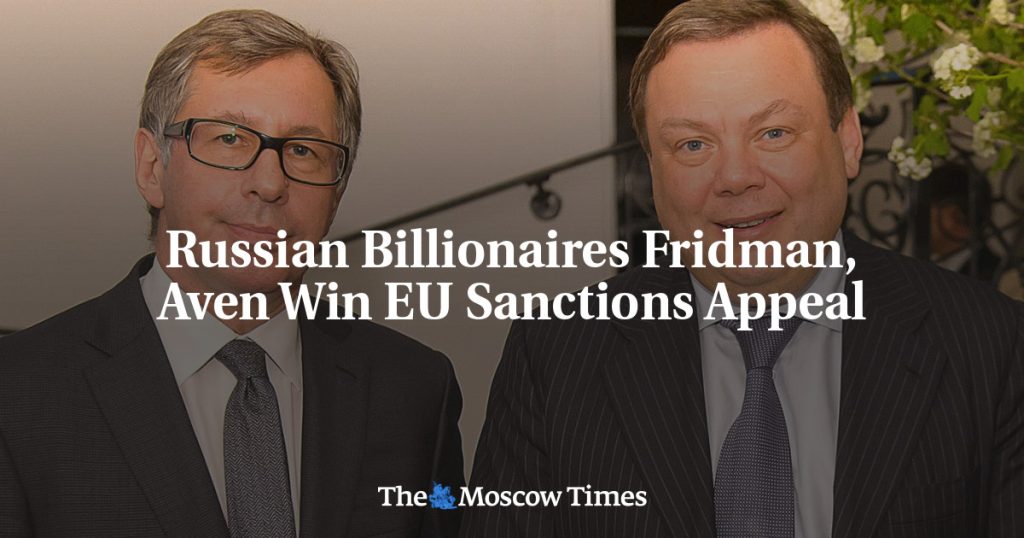The European Union Court of Justice has ruled to annul sanctions imposed on Russian billionaires Mikhail Fridman and Petr Aven, stating that the EU failed to provide enough evidence to include them on the bloc’s sanctions list. The court upheld requests by the businessmen to annul the restrictive measures imposed on them between February 2022 and March 2023. Fridman, who co-founded the investment conglomerate Alfa Group, and Aven, who previously headed Alfa, have long disputed claims that they are close to the Russian authorities or President Vladimir Putin. The court found that their inclusion on the sanctions list was not sufficiently substantiated.
Fridman and Aven, who hold multiple citizenships including Russian and Israeli, had their assets frozen at the beginning of Russia’s invasion of Ukraine in February 2022. They are also subject to U.S. and British sanctions. The businessmen have filed a separate appeal against the EU’s decision in March 2023 to reimpose sanctions on them, which is still ongoing. Some members of Russia’s exiled opposition have lobbied for the removal of sanctions on Fridman and Aven, causing further division within the community of activists. The ruling on Wednesday has generated mixed reactions, with some criticizing the court for giving in to the wishes of Putin and his allies.
The EU Court of Justice clarified that while the European Council had established a degree of proximity between Fridman and Aven with Putin, there was no evidence to show that they had supported actions or policies undermining Ukraine’s territorial integrity or sovereignty. The ruling highlighted that there was no proof of the businessmen providing material or financial support to Russian decision-makers responsible for actions in Crimea or Ukraine. As of now, Fridman and Aven remain under EU sanctions because the measures against them were rolled over in subsequent decisions, despite the annulment of previous sanctions.
The ruling has sparked debates on the effectiveness of European sanctions policy and the repercussions of lifting sanctions on individuals closely associated with the Russian regime. Critics argue that by annulling the sanctions on Fridman and Aven, the EU court is sending the wrong message to Putin and his allies, potentially emboldening them to continue their actions. The decision has raised questions about the criteria for imposing sanctions and the evidence required to justify them. The court’s statement indicates that mere proximity to Putin is not sufficient grounds for sanctions unless there is evidence of direct involvement in actions threatening Ukraine’s sovereignty.
The case of Fridman and Aven highlights the complexities surrounding Russian oligarchs and the international response to Russia’s actions. The businessmen’s denials of close ties to the Russian authorities and their involvement in the conflict in Ukraine have raised doubts about the legitimacy of the sanctions imposed on them. The ongoing legal battle over the sanctions reflects broader tensions within the EU and international community regarding how to address individuals with links to the Russian regime. The court’s ruling sets a precedent for future cases involving Russian oligarchs and their connections to political figures in the country. The outcome of the appeal against the reimposition of sanctions on Fridman and Aven will be closely watched as it could have significant implications for the EU’s sanctions policy.


